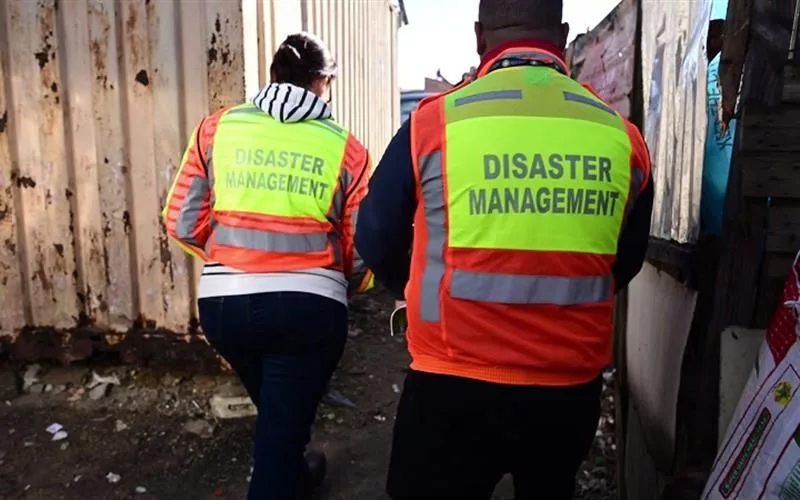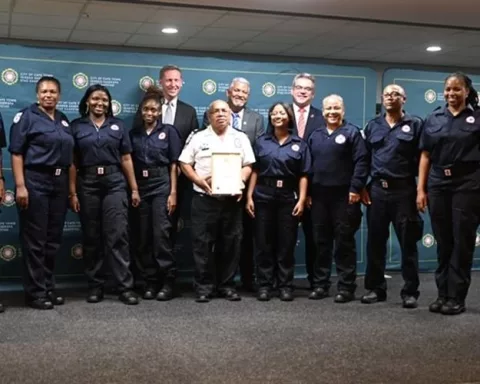Cape Town’s Disaster Risk Management Centre (DRMC) is preparing for potential hazards of the upcoming winter season by holding advisory forums, developing operational plans, and guiding residents to take an active role in protecting their homes and neighborhoods from potential weather-related threats. The city has experienced extreme weather incidents such as an intense drought and an increase in lightning strikes, fires, and strong winds. The DRMC plays a critical part in organizing the city’s initiatives to guarantee winter preparedness, identifying high-risk areas, carrying out educational outreach programs, and organizing relief efforts when required.
How is Cape Town preparing for potential winter hazards?
The Disaster Risk Management Centre (DRMC) in Cape Town, an important department of the city, is gearing up to confront potential hazards of the upcoming winter season. DRMC holds advisory forums to discuss, evaluate, and plan responses to potential public safety threats. The South African Weather Service (SAWS) guides the DRMC in developing their operational plans and backup strategies based on current and upcoming weather patterns. Residents are encouraged to take an active role in protecting their homes and neighborhoods from potential weather-related threats.
As the colder months approach, the Disaster Risk Management Centre (DRMC) in Cape Town is gearing up to confront the potential hazards of the season. The DRMC, an important and dynamic department of the city, has been assembled by the City’s Winter Readiness Task Team. It seeks to ensure public safety and lessen the dangers brought about by unfavorable weather conditions.
The DRMC recently held a Disaster Management Advisory Forum meeting, demonstrating their commitment to managing potential threats. These forums, which occur four times a year, act as a venue for the discussion, evaluation, and planning of responses to potential public safety threats. The South African Weather Service (SAWS) plays a crucial role during these meetings by offering key insights on current and upcoming weather patterns. These insights guide the DRMC in developing their operational plans and backup strategies.
Although the upcoming forecast predicts slightly above-average temperatures and below-average rainfall this winter, SAWS has cautioned that extreme weather conditions are still a possibility.
Weather Peculiarities and Responsibilities in Cape Town
Cape Town has seen a significant alteration in its weather patterns in recent years. Just a few years ago, the city was struggling with an intense drought, and now it’s seeing an uptick in extreme weather incidents. For instance, the month of April experienced an unparalleled number of lightning strikes, which led to several fires. Winds strong enough to cause fires, uproot trees, tear apart roofs, and interfere with power lines have also been observed.
“Disaster risk management is a collective responsibility,” states Alderman JP Smith, the Mayoral Committee Member for Safety and Security. He emphasizes the shared duty of the public in aiding disaster prevention efforts. As winter approaches, Smith’s appeal encourages inhabitants to take an active role in protecting their homes and neighborhoods from potential weather-related threats.
Coordinated Efforts in Disaster Management and Risk Reduction
The DRMC plays a critical part in organizing the city’s initiatives to guarantee winter preparedness. Working with the Informal Settlements Management Branch, it identifies high-risk informal areas and carries out educational outreach programs. These include risk assessments, distribution of informative pamphlets, and installation of warning signs in these zones. The center also organizes relief efforts when required. Between July 2023 and March 2024, the DRMC reported 10,299 incidents of severe weather, affecting 21,419 individuals, highlighting the degree of readiness and response required to lessen the impact of extreme weather.
In addition to these official endeavors, residents can also take steps to minimize threats to their properties. Simple actions such as unclogging drainage systems, raising the floor level of buildings, diverting water away from residences, creating sandbags, and reporting blocked drains can considerably reduce potential damage. The DRMC also encourages residents to weatherproof their roofs, clean gutters, and remove dead tree branches to further diminish risks during harsh weather conditions.
Assistance Channels and the Vital Role of DRMC
The City of Cape Town offers several avenues for residents to report service disruptions, including the Corporate Contact Centre and a digital portal. In emergencies, inhabitants can reach the Public Emergency Communication Centre via landline or mobile phone to ensure their safety and well-being as they battle the challenges of the winter season.
Given the evolving weather patterns and the possibility of extreme weather occurrences, the role of the Disaster Risk Management Centre is indispensable. By cultivating a mindset of preparedness, it not only foresees and controls risks but also promotes public involvement in these efforts. This bolsters the city’s resilience and that of its inhabitants. With such forward-thinking strategies in place, Cape Town is indeed gearing up for winter, prepared to handle any adversity the season may present.
What kind of weather peculiarities has Cape Town experienced in recent years?
Cape Town has seen an intense drought in the past, but now it is experiencing an increase in extreme weather incidents such as lightning strikes, fires, and strong winds. For example, the month of April saw an unprecedented number of lightning strikes leading to several fires, and strong winds have been observed causing fires, uprooting trees, tearing apart roofs, and interfering with power lines.
What is the Disaster Risk Management Centre (DRMC) doing to prepare for potential winter hazards?
The DRMC is holding advisory forums, developing operational plans, and guiding residents to take an active role in protecting their homes and neighborhoods from potential weather-related threats. Working with the Informal Settlements Management Branch, it identifies high-risk informal areas and carries out educational outreach programs. The center also organizes relief efforts when required.
What is the role of South African Weather Service (SAWS) in DRMC’s planning?
SAWS guides the DRMC in developing their operational plans and backup strategies based on current and upcoming weather patterns. SAWS provides key insights on weather patterns during Disaster Management Advisory Forum meetings, which occur four times a year.
What is the shared responsibility of the public in aiding disaster prevention efforts?
Alderman JP Smith, the Mayoral Committee Member for Safety and Security, states that “disaster risk management is a collective responsibility.” He emphasizes the shared duty of the public in aiding disaster prevention efforts and encourages inhabitants to take an active role in protecting their homes and neighborhoods from potential weather-related threats.
What actions can residents take to minimize threats to their properties?
Residents can unclog drainage systems, raise the floor level of buildings, divert water away from residences, create sandbags, and report blocked drains to considerably reduce potential damage. The DRMC also encourages residents to weatherproof their roofs, clean gutters, and remove dead tree branches to further diminish risks during harsh weather conditions.
How can residents report service disruptions and emergencies?
The City of Cape Town offers several avenues for residents to report service disruptions, including the Corporate Contact Centre and a digital portal. In emergencies, inhabitants can reach the Public Emergency Communication Centre via landline or mobile phone to ensure their safety and well-being as they battle the challenges of the winter season.












